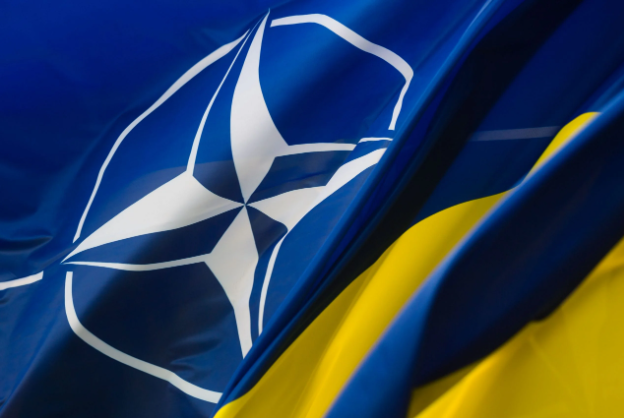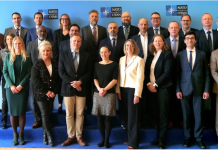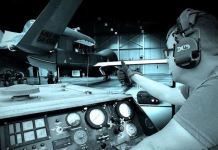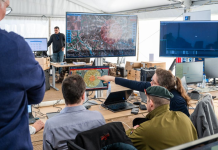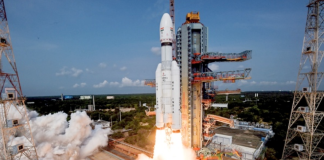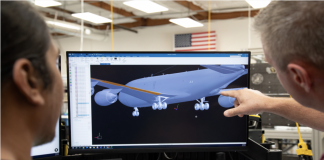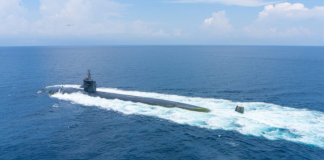In the wake of the Operational Force Development Framework conference in Rzeszów, NSATU and JATEC are deepening their roles in strengthening Ukraine’s operational capacity, institutional resilience, and integration with NATO standards.
As NATO adapts its support for Ukraine in the face of ongoing Russian aggression, two recently established institutions mark a strategic shift from the short-term crisis response to the Alliance’s long-term strategic defence cooperation: the NATO Security Assistance and Training for Ukraine (NSATU) and the NATO-Ukraine Joint Analysis, Training, and Education Centre (JATEC). While distinct in purpose, NSATU and JATEC are united by a shared objective: to ensure Ukraine’s armed forces are capable, interoperable, and sustainable within a NATO-integrated framework.
JATEC: Shaping Tomorrow’s Force through Lessons Learned and Interoperability
Established in early 2025 in Bydgoszcz, Poland, JATEC is NATO’s first jointly operated analysis, training, and education centre with Ukraine. Unlike NSATU’s operational focus, JATEC’s mission is strategic: to ensure Ukraine and NATO draw enduring lessons from today’s war while transforming defence institutions for tomorrow.
JATEC’s core functions include:
- Lessons Learned: Systematically collecting and analyzing insights from the war zones to inform doctrine, operational planning, and NATO-Ukraine cooperation.
- Interoperability: Helping Ukraine align its defence sector, procedures, and command structures with NATO standards through joint education and defence planning.
- Civil-Military Integration: Bridging military and civilian expertise to address multidomain security threats—including societal, informational, and economic challenges.
As a permanent structural part of NATO’s Allied Command Transformation, JATEC embodies NATO’s long-term vision of Ukraine as an essential and interoperable partner. Its civil-military structure enables a comprehensive “whole-of-society” approach, recognizing that modern defence requires more than just armed readiness.
JATEC’s participation in the May 2025 Operational Force Development Framework conference underscored its growing relevance. By contributing to the prioritization of strategic capability development and defence education, JATEC is not only supporting Ukraine’s transformation—it is helping shape NATO’s own adaptation for future challenges.
NSATU: Coordinating Operational Support for Today’s Fight
Established at the 2024 NATO Summit in Washington, NSATU was created to unify and coordinate the previously fragmented efforts of international donors, particularly those led by the U.S.A.-run Security Assistance Group-Ukraine and the U.K.-led International Donor Coordination Centre. Headquartered in Wiesbaden, Germany, and operating under Supreme Headquarters Allied Powers Europe, NSATU now serves as the central NATO-led hub for military support to Ukraine.
Key roles and functions of NSATU include:
- Coordinating training programmes from 18 NATO and partner countries, involving over 192,000 Ukrainian personnel trained to date.
- Managing the logistics, sustainment, and delivery of donated military equipment—ranging from air defence systems to armoured vehicles and munitions.
- Providing operational predictability through a 24-month planning horizon, allowing Ukraine to align external assistance with its national defence campaign.
- Coordination between training delivery organizations and partners – EU military assistance mission in support of Ukraine, joint multinational training group-Ukraine, Op INTERFLEX, Canadian Op UNIFIER, LEGIO and others.
With a multinational staff of over 300 personnel, including embedded Ukrainian liaison officers and representatives from JATEC and NATO partner nations, NSATU ensures tight integration between NATO capabilities and Ukraine’s operational needs. It also acts as a force multiplier for ongoing multinational initiatives like the Ukraine Defence Contact Group and the Capability Coalitions.
Notably, NSATU has assumed a leading role in the Operational Force Development Framework, helping to align Allied support with Ukraine’s evolving priorities. During the May 2025 Operational Force Development Framework conference in Rzeszów, NSATU led coordination on urgent requirements, played a lead role in identifying and addressing Ukraine’s evolving defence needs including munitions, maintenance, electromagnetic warfare, and medical support.
Why Both Matter
By using NATO structures, support for Ukraine will be on a firmer footing, to provide more predictability for Kiev, and will address both immediate and longer term needs. NSATU ensures Ukraine is equipped, trained, and supported to meet the challenges on the ground today. JATEC ensures Ukraine is preparing for tomorrow—through learning, doctrine, and civil-military resilience.
Together, they represent NATO’s dual-track approach to Ukraine:
- NSATU ensures the delivery of immediate operational capability.
- JATEC ensures tomorrow’s transformation.
This model reflects NATO’s own dual structure—where operations and transformation go hand-in-hand. The integration of both organizations into the recent Operational Force Development Framework conference reflects a broader shift–Ukraine is not just receiving support; it is helping shape the future of Euro-Atlantic security.

